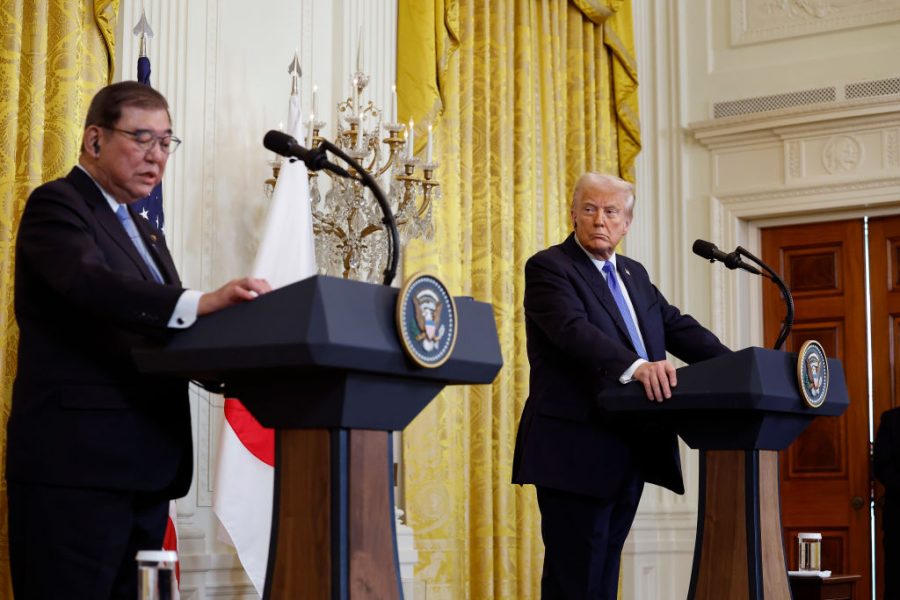This week, a lone federal district court judge in Boston, Massachusetts, with nary a citation to the Constitution, statutes or the applicable Federal Rules of Civil Procedure, entered a temporary restraining order prohibiting the federal defunding of Planned Parenthood. The basis for Judge Indira Talwani’s order is left for the public to surmise. Perhaps the good judge will fill in the blanks before the next hearing planned in the case, within two weeks; or perhaps not, since TROs are generally not appealable. Either way, the judge’s barren two-page order, as it stands, is a textbook example of a lawless judiciary engaged in policymaking from the bench.
Among the many pro-life measures of President Trump’s One Big, Beautiful Bill is a provision terminating Medicaid funding to nonprofit abortion clinics. Planned Parenthood, which receives one third of its funding from American taxpayers, claims it will be forced to close 200 of its 600 clinics when it is booted off what President Trump refers to as the federal gravy train. Planned Parenthood filed suit in federal court to enjoin what its CEO has described as an “existential” threat to its ongoing operations, which are largely centered on the 400,000 abortions it performs each year. Without even granting the government the opportunity to respond, Judge Talwani granted Planned Parenthood’s motion.
To be fair, Judge Talwani is not alone in her public policy grandstanding. She was actively led astray by Planned Parenthood’s 53-page complaint, an angry screed that rails against the Trump administration for keeping its political promises; presumes that Congress must be conscripted to fund Planned Parenthood into perpetuity; and declares a utopian vision untethered to any law: “Planned Parenthood envisions a world of equity: where sexual and reproductive rights are basic human rights, where access to health care does not depend on who you are, where you live, or your ability to pay, and where every person has the opportunity to choose their own path to a healthy and meaningful life.” Notably, none of this language appears in the Constitution of the United States.
As for the legal basis of Planned Parenthood’s lawsuit, that too is mystifying. Count one asserts the bill “constitutes… a bill of attainder.” Since its roots in ancient England, bills of attainder were understood to refer to criminal punishments, not civil legislation authorized in due course. Indeed, in its most recent opinion on the subject, the Supreme Court decreed that applying the term “bill of attainder” to the political process “would cripple the very process of legislating.”
Counts two, three, five and six claim violations of equal protection and the First Amendment. Again, while Planned Parenthood, or any other entity for that matter, has the right to advocate for any ideological cause it wishes, the notion that Planned Parenthood could hold hostage future American tax dollars simply because it once received such funds would raise even a socialist eyebrow. In the litigation before Judge Talwani, Planned Parenthood is unable to cite a single case for the outlandish notion that a disfavored entity is entitled, as a matter of law, to the federal largesse for all of time to come.
Consider for a moment the consequences of Planned Parenthood’s argument. If Planned Parenthood could lay a claim to current and future federal funds, there would be no end of frivolous, fringe, and downright frightening entities that could assert they too were being penalized for unpopular beliefs by being defunded or unfunded.
Defunding is not punishment. Federal funding is not a right. And the American people, acting through those whom they have elected, have the ability to choose which causes to support with their hard-earned money. If those causes change from time to time, that too is the prerogative of the American people.
The American public is hectored often with the line that we are a nation of laws. This is true, of course. Would that the imperial judiciary understood that means judges also must abide by the law, even when our robed masters disagree with the statutes the people’s representatives have enacted.
Trump blocked from defunding Planned Parenthood
A lone federal district court judge prohibited the federal defunding of the abortion provider

Alexis McGill Johnson, CEO of the Planned Parenthood Action Fund, speaks during a hearing on abortion in Washington, DC (Getty)
This week, a lone federal district court judge in Boston, Massachusetts, with nary a citation to the Constitution, statutes or the applicable Federal Rules of Civil Procedure, entered a temporary restraining order prohibiting the federal defunding of Planned Parenthood. The basis for Judge Indira Talwani’s order is left for the public to surmise. Perhaps the good judge will fill in the blanks before the next hearing planned in the case, within two weeks; or perhaps not, since TROs are generally not appealable. Either way, the judge’s barren two-page order, as it stands, is a textbook…

























Leave a Reply